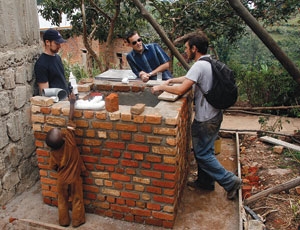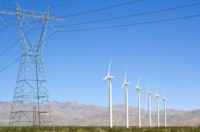Evan Thomas knows full well the growing pains of building something new in the developing world from his work with Engineers Without Borders-USA while an engineering undergrad at the University of Colorado-Boulder. Now just 26, a Ph.D. aerospace engineer and NASA researcher, he is about to score a breakthrough in gaining acceptance of an unorthodox business approach to sustaining infrastructure in poor communities.

In a hectic life of academics and career-building, Thomas has managed to create Manna Energy Ltd., a for-profit social enterprise that seeks to finance new and maintained infrastructure with U.N-sanctioned emission-reduction credits. It is believed to be the first time such a tack has been tried. Thomas, Manna�s executive vice president, his partners and investors are banking on a less-polluting water-treatment plant built in Rwanda during his EWB-USA days to generate revenue to expand the project and the concept. They predict the 500 systems planned there could generate at least $100 million over 14 years. A similar effort is planned in Afghanistan to commercialize a waste-to-fuel project that would create jobs for the poorest.
Only 26, this Ph.D. engineer is the catalyst for a venture that blends third-world infrastructure building with real-world business enterprise.
"Manna Energy is a social enterprise whose motivations include looking out for our shareholders, the same way McDonald�s does," says Thomas, whose networking skills have lured NASA astronauts and retired corporate officials to Manna.
The Swedish government has already agreed to buy 100% of the Rwanda project credits at fixed prices, anticipating expected U.N. approval next month. "Evan is really the backbone of this," says Manna CEO Victor Bernstein, a former satellite communications executive. �He�s an incredible multi-tasker."





Post a comment to this article
Report Abusive Comment